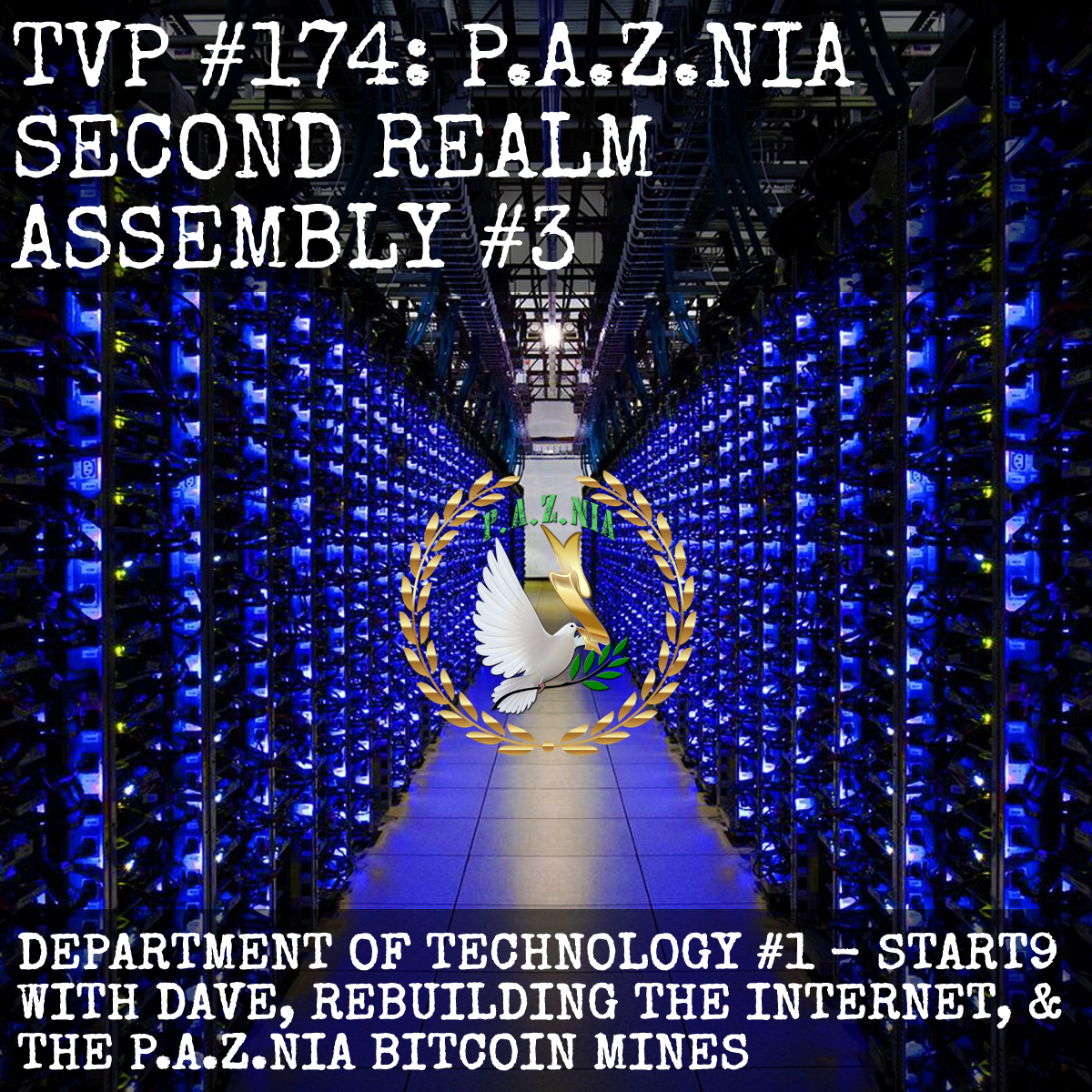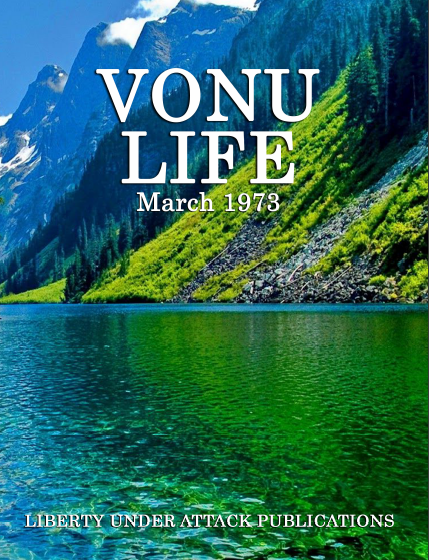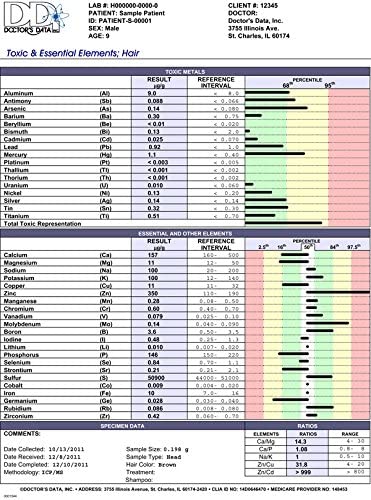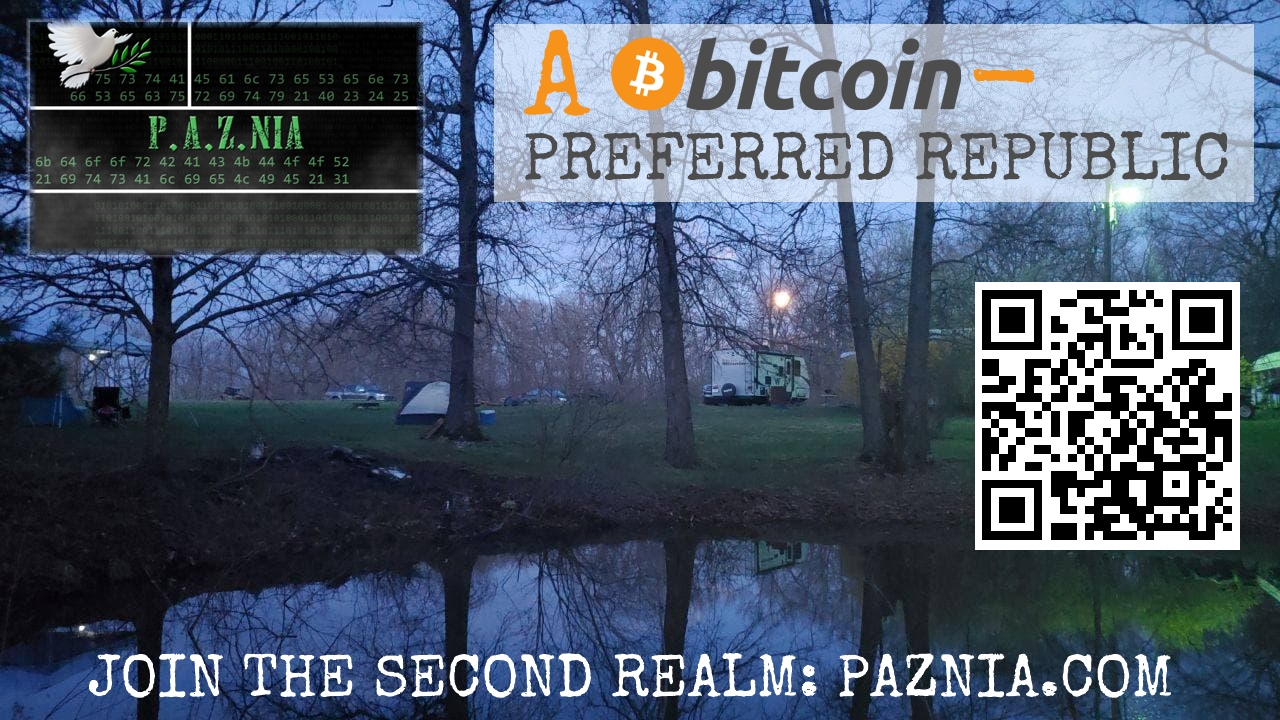Podcast: Play in new window | Download
Subscribe: Apple Podcasts | Android | Email | Google Podcasts | Stitcher | TuneIn | Spotify | RSS
On this episode of The Vonu Podcast, you’ll catch the newest P.A.Z.NIA Second Realm Assembly, the first meeting of our Department of Technology.

Herein, we went deep into Start9 with Dave, discussed the many problems with the First Realm Internet infrastructure, and solutions to transition off of & eventually build our own networks…
Finally, we conclude with a wide variety of bitcoin topics: agorist home bitcoin mining, mining potentialities for the P.A.Z.NIA Network, unique ways to use the heat generated from miners (like, getting paid sats to sit in your hot tub), the lightning network, and more.
MAIN SPEAKERS INCLUDE:
- Dave from Start9
- Matthew Raymer from ContentSafe.co
- Thomas Freedman from PirateBox
- Alex Dischinger (Tucson Bitcoin)
- Josiah Warren (P.A.Z.NIA General Bitcoin Fund)
- And more!
The next Assembly will happen in the next couple/few weeks — follow The Vonu Podcast, or stay up-to-date by joining the P.A.Z.NIA Committee of Correspondence (T.ME/PAZNIACHAT).
SHOW GUIDE:
- I introduce the Assembly and The Free Republic of P.A.Z.NIA
- [Start9] A big goal of rebuilding the Internet from the ground up…the first step? Individuals owning their own servers/infrastructure
- [Start9] Differences between Start9, FreedomBox, & other similar projects
- [Start9] In 2023, they will move into the realm of networking; sovereignty of data, to sovereignty of networks
- [Start9] Privacy-friendly, open source “Smart Technology” — home surveillance, drones, fitness tracking, etc. that doesn’t phone home to Google
- [Start9] Matthew Raymer from ContentSafe.co chimes in to discuss the overlaps between the two projects, and his work with Thomas Freedman on PirateBox (i.e. content creators owning the distribution of their own content)
- [Start9] User-friendly: allows users to become system administrators, without the need of interacting with config files, command line interface, etc.
- Start9 Community: https://community.start9.com/
- Start9 Docs: https://docs.start9.com/latest/
- Rebuilding the Internet from the ground up — how would that look? Matthew believes, entirely different than the Internet/network we interact with today
- Different possible ways of securely connecting peer-to-peer and getting around ISP restrictions (NAT holepunching, I2P/Tor, etc.)
- Other needs for content creators: large volume (16/24 terabyte) handheld devices to allow creators with high storage needs to host/distribute content via IPFS and elsewhere
- Direct remote connections already available on Start9: encrypted messaging over Tor was one of the first things they rolled out
- Public-private key infrastructure is going to be big in coming decentralized reputation systems and the future of the Internet more generally
- Trent (Matthew’s associate) introduces the project they’re working on: ideas for building local community, solutions for organizing, ways to build out networks safely, via Circles of Trust (for longtime listeners, it’s a physical space-and-time version of Scuttlebutt, a decentralized, distributed network protocol); self-sovereign identities
- Scuttlebutt is worth considering in the future and right now: the Manyverse client/app
- A big problem in the open source community: can’t just rely on donations, there must be a way to build up funds and resources to make/maintain this software similar (or better) to the ease-of-use found in SpyPhones, Windows machines, etc.
- Also a major need for self-liberational media in this arena: educational materials on all of this stuff
- Thomas Freedman gives a rundown on the PirateBox, which has turned into the PirateStick
- NEXT DEPARTMENT OF TECHNOLOGY ASSEMBLY? A development meeting/session for the PirateStick how-to video series
- Thomas asks Dave about Start9’s view on IPFS, the user experience with IPFS, and it’s role in future iterations
- Since Start9 is an open source service, if the “company” goes away, different repositories should always exist, so long as people take it up (like with F-Droid repositories)
- Josiah steps in to provide some updates on the P.A.Z.NIA General Bitcoin Fund, some recent projects/individuals it has funded, how to contribute to it, and more
- Agorist Bitcoin Mining & The Coming P.A.Z.NIA Bitcoin Mines with Alex Dischinger/TucsonBitcoin
- Bitcoin, energy usage, and a new paradigm
- Possibility: if a P.A.Z.NIAN had a location with favorable energy prices, or maybe in buildings within commercial or industrial zones (lower prices), they could get paid to host the miners
- Solar power is not feasible for mining bitcoin
- Dave: another way to look at this — do you have a use case for waste heat? A chicken coop that needs heated in the winter? Maybe you need water heated (hot tub/water heater)? Tune down the miner to 300-400 watts and make a little KYC-free sats
- Some discussion regarding bitcoin lightning: bitcoin mining micro-transaction payouts, Alex sees viability in small, quick txs over LN, and for the P.A.Z.NIA General Bitcoin Fund, a way for small donations
- Matthew and Trent have talked about integrating lightning payments within the project they’re building
- Podcast platforms that allow for bitcoin lightning donations (i.e. 100 satoshis a minute) are coming out
- What about privacy & traceability on the lightning network?
~~~
REFERENCED:
HEALTH LIBERATION/SELF-LIBERATION SPECIAL OFFERS:
The Amazing AquaCure!
Interested in your own AquaCure? Save $125 with coupon code “vonu“, and help support the P.A.Z.NIA Department of Health/Wellness at the same time!

~
PRIVACY-FOCUSED HEALTH INSIGHTS:
Order your hair mineral analysis test today (affiliate), and gain a major insight into your current state of health or dis-ease…while preserving your privacy from Babylon Pharmaceuticals!






